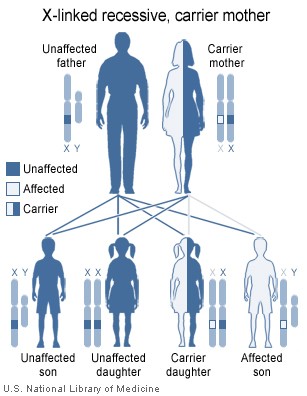Alternative remedies
They're most popular in the West
A national telephone survey by Puritan.com, an online vitamin store, found that we in the West are more likely to try alternative therapies than are people in other parts of the country. Other survey results:
Women are more likely than men to try an alternative therapy, 68 percent vs. 50 percent.
The most popular alternative therapies are herbal or vitamin therapy (42 percent), followed by massage (29 percent), aromatherapy (17 percent) and yoga and homeopathic therapies (each at 10 percent).
Nine of 10 believe alternative therapies can help a variety of health conditions. Chief among them is stress relief, followed by low energy, joint pain, weight problems, emotional disorders and muscle building.
New weapon in war
Grants may help fight retardation
The war on Fragile X syndrome - one of the most common causes of inherited mental retardation and neuropsychiatric disease - has been given a boost with a new research initiative. The National Institute of Child Health and Human Development and the FRAXA Research Foundation announced recently that they are funding a series of grants to encourage research exploring the epidemiology, genetics and neurobiology of Fragile X syndrome. The National Institute of Mental Health also is lending support.
In Colorado Springs, a support group for parents of Fragile X children meets on the first Friday of each month. Call Cindy at 638- 0729 for more information.
Educational excellence
Local programs recognized
Memorial Hospital's Diabetes Care Program and the Diabetes and Renal Care Clinic of the Penrose-St. Francis Health Learning Center both have received the American Diabetes Association Education Recognition Certificate. Programs that receive the certification are regarded as offering high-quality diabetes self-management education, an essential part of effective diabetes treatment. Nearly 16 million Americans have diabetes.
Got knee pain?
Therapy information available
The Arthritis Foundation is offering a free brochure on hyaluronic acid therapy, a nonsurgical pain-relief therapy for osteoarthritis of the knee. The new therapy involves a series of injections to replace a lubricating fluid in the knee joint, which relieves pain and increases joint mobility. To request the brochure, call (800) 475-6447.
- Bill Radford The Gazette
To submit items for consideration, or to contact us: e-mail feat@gazette.com; phone 636-0272; fax 636-0202; mail Vital Signs, P.O. Box 1779, Colorado Springs 80901.
Copyright 2000
Provided by ProQuest Information and Learning Company. All rights Reserved.



